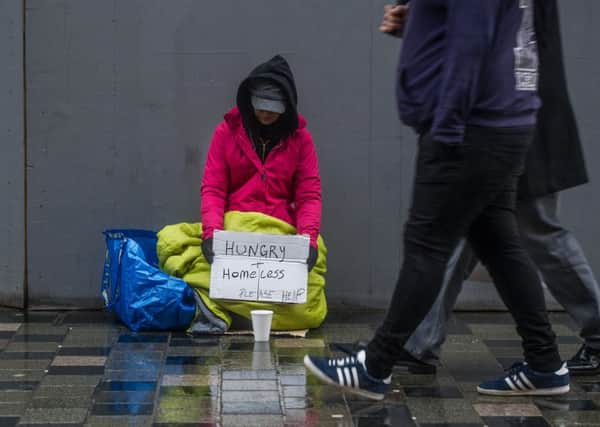Street pharmacies to aid city's rough sleepers


The groundbreaking initiative has secured around £60,000 of funding from the Scottish Government and will see three clinical pharmacists hit the streets of Glasgow to address the acute medical needs of the city’s rough sleepers.
Recent work carried out in the city identified levels of multimorbidity in the homeless population who are registered with a GP, as being comparable to patients aged 84 in regular society – despite them having an average age of 43.
Advertisement
Hide AdAdvertisement
Hide AdHomeless people are also 40 times more likely than others not to be registered with a GP and A&E attendances are five times higher with admissions three times higher among the homeless.
In some cases no medical records exist and doctors’ letters are never received due to them having no postal address.
Dr Richard Lowrie from NHS Greater Glasgow and Clyde, had the idea for the project and is one of the pharmacists who will go out into Glasgow city centre with the Simon Community Scotland street team.
He said: “We are going to have clinical pharmacists who can prescribe reaching people where they live in the streets. Currently there is no GP service that does outreach in this way and there isn’t any nurse service that manages multiple conditions.
“What we’re offering is a holistic review of the patient, we know that most people who are homeless have tri-mobidity, which is mental health, physical problems and addictions.
“What’s new here is we’ve got the opportunity to go out into the street with all of the various tools you’d assess somebody’s health with.
“We go out with someone from the Simon Community street team because they know the patients well enough and the trust is there.”
Lowrie said that once they’ve engaged with someone in the street they can go back to a community pharmacy room or day centre to access the individual’s medical records and judge whether they need a prescription or to be referred to a GP or admitted to hospital.
Advertisement
Hide AdAdvertisement
Hide AdHugh Hill, director of services and development, at Simon Community Scotland, said they are working with 50 people per day around Glasgow city centre.
He said: “We’ve worked with people in terrible states but we can’t get them to a GP that day. Their priority is food, money, drugs, alcohol and finding somewhere to stay, so when it comes to health it’s way down the list. These are people who don’t connect well with services, and services don’t connect well with them, so you need a new kind of response.”